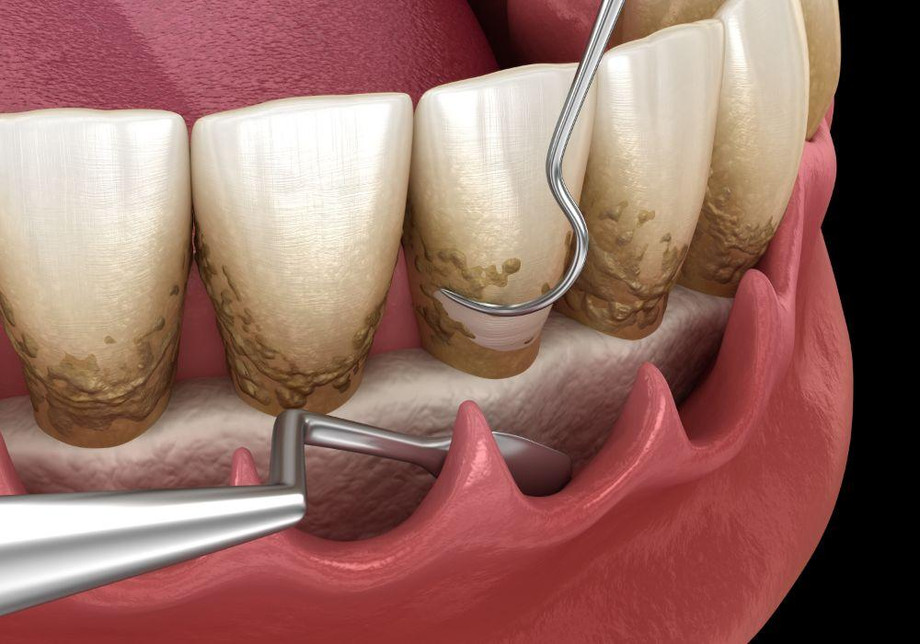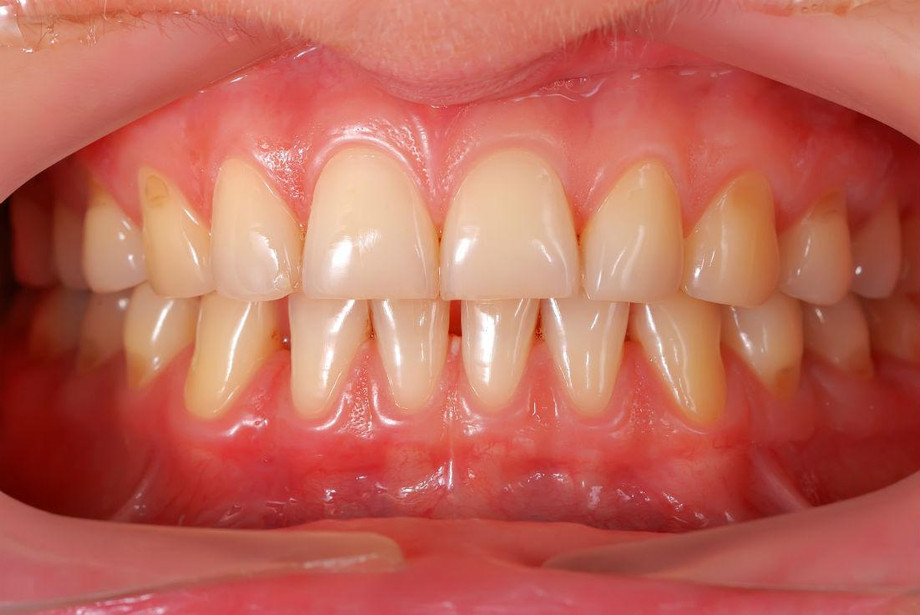What are the stages of periodontal disease?
You know that having periodontal disease stages can cause your gums to recede and your teeth to become loose, but there are actually five stages of periodontal disease to be aware of, each with its own symptoms and treatments. Let’s take a look at each stage below
The stages of gum disease - The initial signs
The first stage of gum disease, called gingivitis, is what people typically think of when they imagine bad breath or painful bleeding gums. Gingivitis is an inflammation of your gums and as a result, causes redness and swelling around your teeth. This can cause tissue to build up along your gum line making it appear that there’s more gum than tooth when in fact you do have some teeth left! The second stage: If you don’t seek treatment at Stage 1 – where most periodontal treatments focus on improving hygiene habits – gingivitis will advance into a more serious condition called chronic periodontitis.
The Stages of Periodontitis disease - Stage 1
Gingivitis, Stage 2: Periodontitis. In Gingivitis, your gums become red and swollen. They may also bleed when you brush your teeth or during flossing. The inflammation occurs when bacteria in plaque builds up under your gumline and irritates it. If left untreated, it can lead to Periodontitis (advanced gum disease). In periodontitis, plaque buildup causes bone and tissue loss around your teeth. Once it gets past stage 2 (also known as chronic inflammation), it may progress to end-stage 3: Atrophy which is when there is irreversible tissue damage where no regenerative response can take place anymore.
Treatment options
It’s important to remember that there’s no standard periodontal treatment. The type of treatment you receive will depend on many factors, including your diagnosis and how severe your gingivitis is. Often, your dentist will determine what course of action to take based on his or her evaluation. If you want a more involved level of involvement from your dental professional, you can request a consultation with a periodontologist—an oral health specialist who specializes in advanced treatments for gum disease. However, keep in mind that not all dentists have access to these specialized therapies and often refer patients directly to them when appropriate.
Changing your lifestyle to prevent gum disease
A major risk factor for gum disease is an unhealthy lifestyle. Gum diseases are often linked to improper diet, smoking, stress and a lack of exercise. Even if you’re doing everything right with your oral hygiene habits, though, there is a very real possibility that you could still suffer from gum disease due to these other factors. For example, even if you brush twice a day and floss once every evening after dinner, but still tend to eat too much junk food or smoke cigarettes between meals—it’s just not enough. To combat any risk factors that might make it harder for you to maintain healthy gums, it may be a good idea to change your lifestyle and take steps towards living healthier overall.
And once it's been treated?
Just because you’ve had a gum infection (like periodontitis) doesn’t mean it can’t come back. Treatments vary from one individual to another, so if you want to keep your gums healthy, you should check in with your dentist at least once every six months and be sure to follow proper dental hygiene guidelines. You should also make sure you’re brushing your teeth twice daily for two minutes each time, using fluoride toothpaste and flossing at least once a day. If you have any bleeding or pain while brushing or flossing, don't hesitate to call your dentist right away! Early intervention is vital when it comes to treating a gum infection that could lead to periodontitis and other serious health conditions.
End result
There are three broad clinical stages that characterize gum disease, or periodontitis. The first stage is characterized by bleeding gums and swollen or tender gums; in some cases, loose teeth may also result from early periodontitis. In addition to these symptoms, it’s possible for individuals with early periodontitis to experience aching teeth during chewing and/or nighttime pain.


Comments
Post a Comment